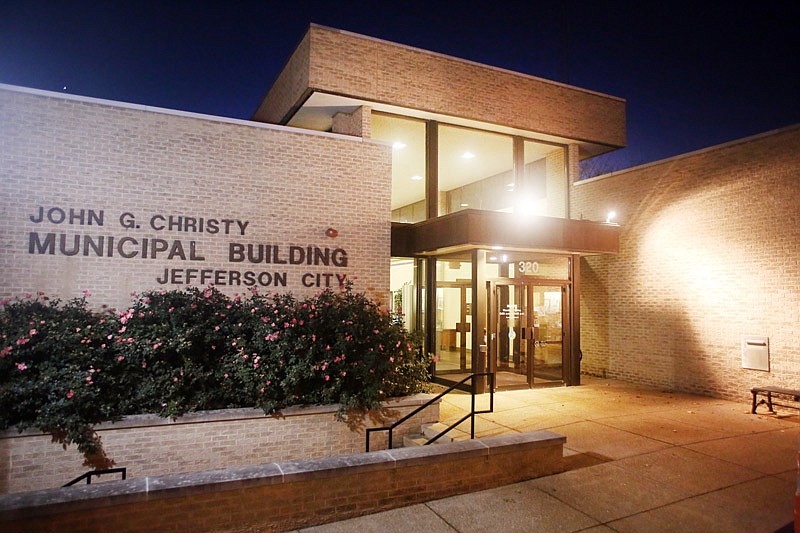City staff introduced a bill Monday night that, if approved by the Jefferson City Council, would place a use tax on the August ballot.
The proposed 2 percent use tax would be on out-of-state purchases of taxable items, where the purchaser pays the tax instead of the seller. If approved by the council May 21, residents will vote on it Aug. 7.
Last month, local business owners asked the council to implement a use tax to level the playing field with out-of-state retailers. Currently, if someone purchases an item in Jefferson City, a sales tax is added to the purchase price. If someone purchases the same item from an out-of-state vendor, that vendor does not have to collect state or local sales tax.
"Out-of-state internet-based vendors are in theory at a competitive advantage compared to City of Jefferson vendors because they do not have to charge state and local sales tax," the bill states. "A use tax would ensure that purchases from out-of-state vendors are subject to the same state and local tax rates as those purchases made from City of Jefferson vendors."
Residents would not pay both taxes for the same purchase, City Counselor Ryan Moehlman said.
If the council and voters approved a 2-percent use tax, the city could receive about $1.5 million in additional revenue, Jefferson City Finance Director Margie Mueller said previously.
The Missouri Supreme Court ruled in 2012 cities can collect sales tax on out-of-state motor vehicle purchases only if the cities have local use taxes, meaning Jefferson City must either receive voter approval to continue the sales tax on out-of-state motor vehicle purchases or pass a use tax before November 2018.
If the city does neither, it will no longer receive sales tax on out-of-state vehicle purchases, losing about $240,000 annually, Mueller said.
Also Monday, the City Council heard the finalized land conveyance agreement between the city and state for the Missouri State Penitentiary redevelopment project. The city hopes to redevelop 31.28 acres of the old prison site, with this agreement laying out the state's expectations.
If approved by the council May 21, the city would pay $10 for the 32 acres.
The city would have to select a developer within two years of closing on the conveyance and begin construction within four years, the contract states.
The primary uses for the redevelopment site would include hotels, entertainment venues, office buildings, museums and convention centers. The city could construct secondary uses like full-service and fast-casual restaurants, bars, coffee shops and retail establishments as long as these features do not exceed 10,000 square feet each. Other uses include parking spaces, one parking structure, green spaces and pedestrian plazas.
Not allowed on the redevelopment site are traditional fast-food restaurants, restaurants or retail establishments with drive-thru facilities, an enclosed shopping mall, or other residential uses besides condominium units and loft-style apartments.
The city would also construct the MSP Parkway, which would extend Chestnut Street northward and provide vehicular access between the Lafayette Street cul-de-sac and Chestnut Street, the contract states.
All buildings and improvements would be of similar style to the existing Missouri State Penitentiary historic structures.
The 32-acre redevelopment would not include the historical buildings used for prison tours, as the historic buildings will remain in the state's possession, including the gas chamber.
The state could terminate the contract if the city doesn't meet the timeframe goals or develop the site in a way that's consistent with the contract.
Two additional representatives from the state would be added to the Missouri State Penitentiary Community Partners, according to the contract. Office of Administration Director of Facilities Cathy Brown is currently the only state representative on MSPCP and would remain on the board.
The MSPCP would not recommend a developer or development plan to the City Council without approval from two of the three state representatives, the contract notes.
If the council approves the contract, the city and state will work on a quit claim deed, which would give the city possession of the proposed redevelopment site.
In July, Gov. Eric Greitens signed over the nearly 32 acres to Jefferson City after legislative approval.
In other business, the City Council heard a $285,521 contract with Bartlett and West on Monday to design a new Dunklin Street bridge that goes over Wears Creek, along with improvements between Missouri Boulevard and Broadway Street like replacement sidewalks, an updated stormwater system, upgraded traffic signal and a greenway trail extension.
Due to structural issues, the replacement bridge is listed as a Sales Tax G project. Since voters approved the Sales Tax G project list, city staff said, the bridge's condition is worsening.
The project would be a joint project with Cole County.
The council also approved a $283,254 contract with Jviation Inc. on Monday to conduct a new master plan for the Jefferson City Memorial Airport, as the current plan is from 1992. The plan will lay out the airport's goals over the next 15-20 years.
A grant agreement between the city and Missouri Highways and Transportation Commission would fund 90 percent of the project cost - $257,178 - with a local 10-percent match of $26,076. The local match will come from the Capital Improvement Sales Tax.
On Monday night, the council heard a Preliminary Planned Unit Development plan from Irvine Capital Management LLC to construct a 10,116-square-foot a new U.S. Department of Veteran Affairs clinic at 3430 W. Edgewood Drive.
The Jefferson City Planning and Zoning Commission approved the plan last month.

